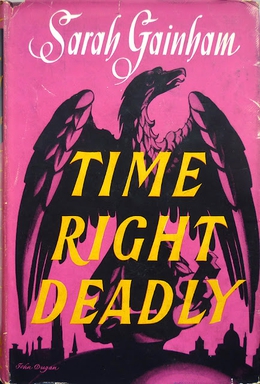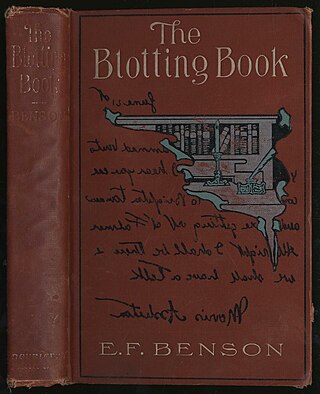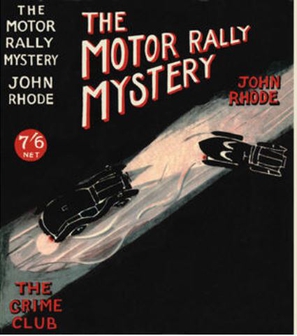
Sir George Abraham Grierson was an Irish administrator and linguist in British India. He worked in the Indian Civil Service but an interest in philology and linguistics led him to pursue studies in the languages and folklore of India during his postings in Bengal and Bihar. He published numerous studies in the journals of learned societies and wrote several books during his administrative career but proposed a formal linguistic survey at the Oriental Congress in 1886 at Vienna. The Congress recommended the idea to the British Government and he was appointed superintendent of the newly created Linguistic Survey of India in 1898. He continued the work until 1928, surveying people across the British Indian territory, documenting spoken languages, recording voices, written forms and was responsible in documenting information on 179 languages, defined by him through a test of mutual unintelligibility, and 544 dialects which he placed in five language families. He published the findings of the Linguistic Survey in a series that consisted of 19 volumes.

The sixteenth season of Saturday Night Live, an American sketch comedy series, originally aired in the United States on NBC between September 29, 1990, and May 18, 1991.
Louis Ferrante is an American writer who was a former heist expert and Gambino crime family mobster. He spent eight and a half years in prison for heists and hijackings, successfully appealed his conviction and became a bestselling true crime, business, and science writer. He hosts his own show, airing on Discovery International in 195 countries and was nominated for a Grierson Trust Award, which is considered the most prestigious documentary award in the United Kingdom, known as "the Oscars of the documentary world."
Edward Grierson was a Northumberland barrister and a writer of crime novels. His debut crime novel is the outstanding Reputation for a Song, a classic inverted detective story. Grierson also wrote five novels, six works of non-fiction and two plays. He also wrote as Brian Crowther and John P. Stevenson.
"'Covenant" is the sixteenth episode of the first season of the American crime-thriller television series Millennium. It premiered on the Fox network on March 21, 1997. The episode was written by Robert Moresco, and directed by Roderick J. Pridy. "Covenant" featured guest appearances by John Finn, Michael O'Neill and Sarah Koskoff.
Inspector Joseph French is a fictional British police detective created by Irish author Freeman Wills Crofts. French was a prominent detective from the Golden Age of Detective Fiction, appearing in twenty-nine novels and a number of short stories between 1924 and 1957. The character was introduced in the 1924 novel Inspector French's Greatest Case, where he investigates a fatal diamond robbery in Hatton Garden. The series relied largely on puzzle mysteries.

Natural Causes is a 1953 comedy crime novel by the British writer Henry Cecil. It was his fourth novel. As with most of his work it combines Wodehousian humour with a potentially major crime theme.

Speedy Death is a 1929 mystery detective novel by the British writer Gladys Mitchell. It introduced the character of Mrs Bradley who would go on to appear in a further sixty five novels. The title is sometimes written as A Speedy Death.

The Rising of the Moon is a 1945 mystery detective novel by the British writer Gladys Mitchell. It is the eighteenth in her long-running series featuring the psychoanalyst and amateur detective Mrs Bradley. It has been described as one of the best of Mitchell's novels.

Reputation for a Song is a 1952 crime novel by the British writer Edward Grierson. It is an inverted detective story, breaking with many of the traditions of the established Golden Age of Detective Fiction. A young man is placed on trial accused of murdering his father. Its conclusion rests on interpretations of the presumption of innocence.

We, the Accused is a 1935 crime novel by the British writer Ernest Raymond. It is inspired by the Edwardian era Doctor Crippen case. The novel is written to engage the reader's sympathy for the murderous protagonists.

The Second Man is a 1956 crime novel by the British writer Edward Grierson. It won the Gold Dagger award of the Crime Writers' Association.

A Crime of One's Own is a 1967 crime novel by the British writer Edward Grierson.
The Massingham Affair is a British period crime television series which originally aired on BBC 2 in six episodes from 12 September to 17 October 1964. It is an adaptation of the 1962 novel of the same title by Edward Grierson. Unlike many BBC series of this era, it is believed all six episodes survive intact, but remain unreleased since their original broadcast.

Time Right Deadly is a 1956 thriller novel by the British writer Sarah Gainham. Her debut novel, it was shortlisted for the Gold Dagger Award, losing out to Edward Grierson's The Second Man. Like many of her novels it takes place in post-war Austria, where she lived.

The Blotting Book is a 1908 mystery crime novel by the British writer E.F. Benson, later better known as the author of the Mapp and Lucia series. It was one of only two ventures he made into the genre during his prolific career along with The Luck of the Vails (1901). It takes place in Brighton and the nearby South Downs.

Trial and Error is a 1937 mystery detective novel by the British writer Anthony Berkeley. It was a loose sequel to the 1929 novel The Piccadilly Murder, featuring two of the characters from the earlier work the unprepossessing but shrewd Ambrose Chitterwick and Chief Inspector Moresby of Scotland Yard. Berkeley was a prominent author of the Golden Age of Detective Fiction, known for his inverted detective stories.
Take a Pair of Private Eyes is a British comedy crime television series which originally aired on BBC 2 in six episodes from 10 April to 15 May 1966. It was written by Peter O'Donnell, best known as the creator of Modesty Blaise. The title is a reference to the Gilbert and Sullivan song Take a Pair of Sparking Eyes. In the style of The Thin Man it focuses on Ambrose and Dominique Fraynes a husband and wife who run a private detective agency assisted by his father Hector.

The Motor Rally Mystery is a 1933 detective novel by John Rhode, the pen name of the British writer Cecil Street. It is the fourteenth in his long-running series of novels featuring Lancelot Priestley, a Golden Age armchair detective. It was published in the United States by Dodd Mead under the alternative title Dr. Priestley Lays a Trap. It takes place against the backdrop of the real life RAC Motor Rally, which concluded at Torquay.

Beware of the Trains is a collection of detective short stories by the British writer Edmund Crispin published in 1953. It contains sixteen stories including Beware of the Trains which gave its title to the collection. They all feature Crispin's amateur detective and Oxford professor Gervase Fen, an eccentric with a genius for solving complex cases. A number also featured Detective Inspector Humbleby of Scotland Yard who also appears in two of the novels in the Fen series. Apart from one they had all previously appeared in the Evening Standard newspaper. It was the last work featuring Fen for many years, until Crispin returned to the character for the 1977 novel The Glimpses of the Moon.














